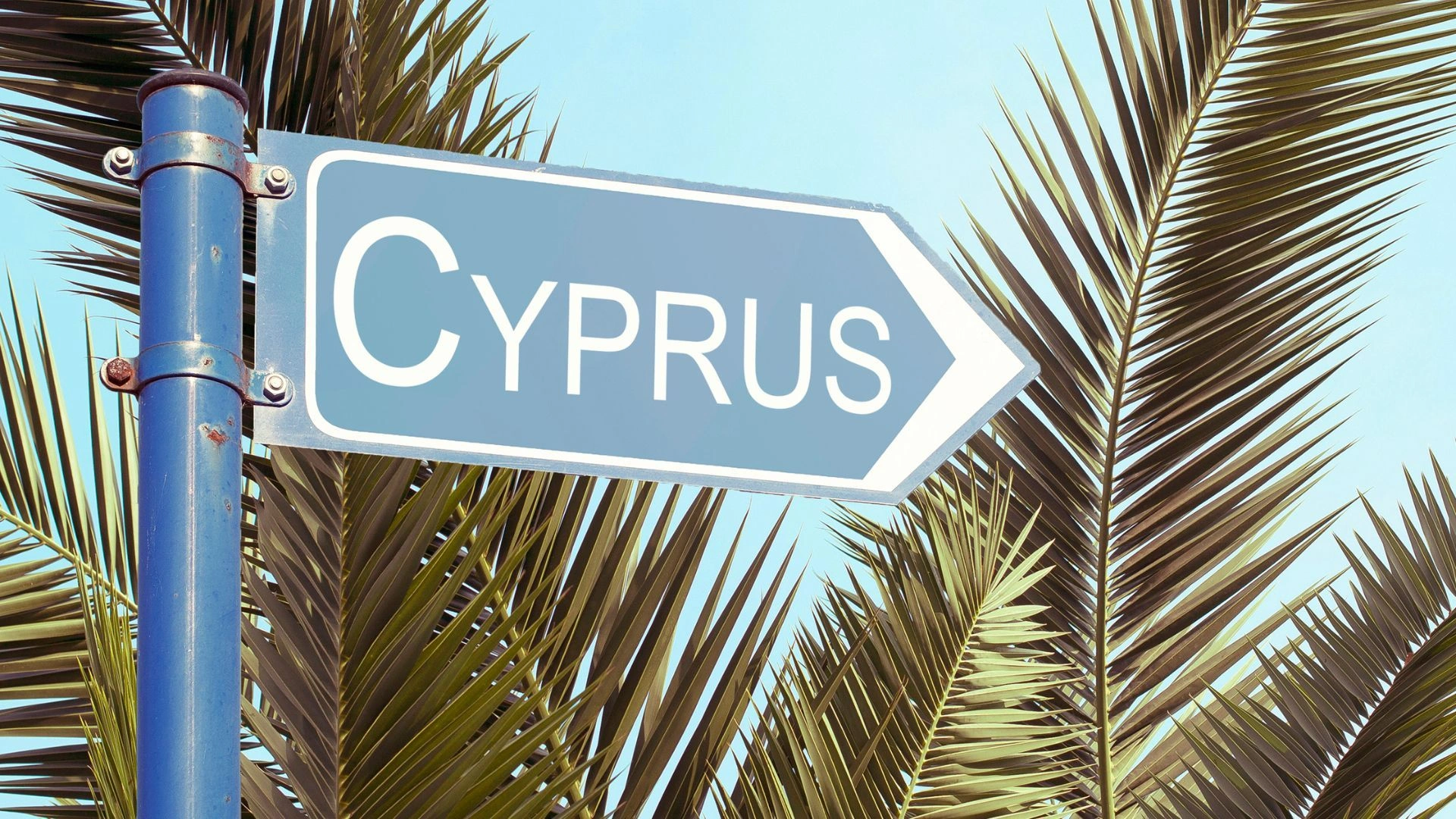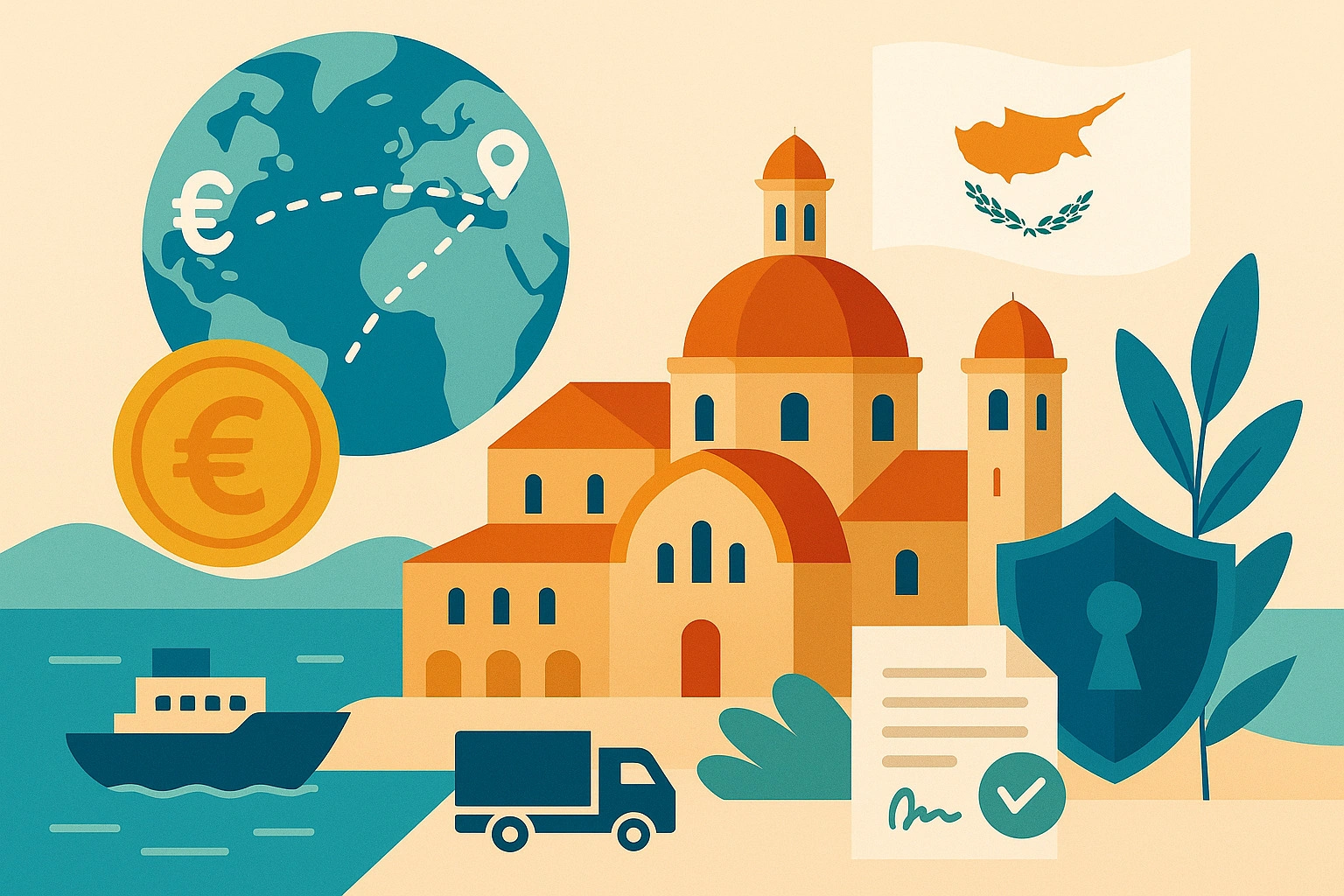Advantages of traveling
to Cyprus
Mediterranean Coastline
Bask on crystal-clear beaches along the Mediterranean coast, where serene coves, vibrant water sports, and seaside promenades await. Beachfront tavernas serve fresh seafood, and coastal villages showcase authentic local charm year-round.
Ancient Heritage
Explore UNESCO World Heritage sites such as Paphos Archaeological Park and the painted churches of Troodos, guided by local experts. Discover Hellenistic mosaics, Byzantine frescoes, and well-preserved amphitheaters that chronicle Cyprus’s layered past.
Mountain & Nature
Venture into the Troodos Mountains for scenic hiking trails, pine-forested valleys, and cascading waterfalls. Sample local wines at hillside vineyards, visit traditional villages, and encounter endemic wildlife in nature reserves under comfortable mountain-lodge accommodations.
Mediterranean Coastline
Bask on crystal-clear beaches along the Mediterranean coast, where serene coves, vibrant water sports, and seaside promenades await. Beachfront tavernas serve fresh seafood, and coastal villages showcase authentic local charm year-round.
Ancient Heritage
Explore UNESCO World Heritage sites such as Paphos Archaeological Park and the painted churches of Troodos, guided by local experts. Discover Hellenistic mosaics, Byzantine frescoes, and well-preserved amphitheaters that chronicle Cyprus’s layered past.
Mountain & Nature
Venture into the Troodos Mountains for scenic hiking trails, pine-forested valleys, and cascading waterfalls. Sample local wines at hillside vineyards, visit traditional villages, and encounter endemic wildlife in nature reserves under comfortable mountain-lodge accommodations.

Useful articles
and recommendations from experts
Global Market Guides
Investment Strategy & Planning
Cyprus
Exploring Investment Opportunities and Real Estate in Cyprus
Exploring Investment Opportunities and Real Estate in Cyprus
11.06.2023

Global Transactions
All
Popular
Cyprus
7 Best Ways to Handle Cross-Border Payments for Business and Property in Cyprus in 2025
Efficient, secure, and compliant routes to send money to Cyprus for corporate operations and real estate purchases
13.08.2025

Global Transactions
All
Popular
Cyprus
Buying Property in Cyprus: Legal and Financial Steps in 2025
Clear guide to secure and compliant property purchases
13.08.2025

Investment Strategy & Planning
Global Market Guides
Cyprus
Cyprus Real Estate 2025: Investment Laws, Market Overview & Buyer Guide
Cyprus Property Market: Who Can Buy, Where to Invest, and How the Laws Work
29.03.2025

Tourism in Cyprus: A Complete Guide
Cyprus, an island nation in the Eastern Mediterranean, captivates visitors with its juxtaposition of ancient ruins, sun-drenched beaches, and aromatic citrus groves. From archaeological sites dating to the Neolithic period to classical Greek amphitheaters, tourism in Cyprus offers a rich tapestry of historical and cultural landmarks. Combined with a warm Mediterranean climate and welcoming communities, the country entices travelers seeking diversified travel experiences in Cyprus that seamlessly blend educational exploration, outdoor adventure, and leisurely relaxation.
Whether you are planning a short island-hopping getaway or an extended cultural expedition, understanding how to visit Cyprus efficiently can elevate your journey. Ferries connect the mainland ports to Greek islands, while domestic bus services and rental cars provide inland mobility. To make the most of local attractions, consider reviewing best tours in Cyprus—ranging from Paphos mythology excursions to guided nature hikes in the Troodos Mountains—each designed to maximize time and immerse you in the island’s unique heritage and natural beauty.
Why Cyprus is attractive for travelers
Cyprus’s allure lies in its multifaceted appeal: a seamless integration of classical antiquity, vibrant coastal resorts, and verdant interior highlands. The island’s archaeological sites—including the Tombs of the Kings in Paphos and the ancient city-kingdom of Kourion—offer unparalleled glimpses into Hellenistic and Roman civilizations. Coastal towns such as Ayia Napa and Protaras feature golden sands and translucent waters that rank among the Mediterranean’s finest. Inland, the Troodos range presents cool pine forests and traditional mountain villages, creating a contrasting climate and environment that enhance tourism in Cyprus by catering to diverse interests.
Adding to its desirability, Cyprus boasts a culinary heritage shaped by Greek, Turkish, and Middle Eastern influences. Meze feasts—featuring halloumi, souvlaki, and locally produced olive oils—highlight regional produce and age-old recipes. Wine tourism thrives in the Commandaria vineyards, where heritage wineries produce sweet dessert wines in terraced vineyards dating back to antiquity. Year-round sunshine and well-developed hospitality infrastructure ensure that seasons rotate without reducing appeal, making Cyprus an attractive destination at any time of year.
Key tourism offerings and travel styles
Tour operators in Cyprus curate a spectrum of thematic itineraries tailored to varied preferences. Cultural tourism centers on guided archaeological walks and museum tours—visitors can explore Kition’s ancient city walls in Larnaca or discover Byzantine mosaics in local chapels. Water-based activities include snorkeling or scuba diving in Cape Greco’s marine reserves and yacht charters for island-hopping adventures, representing some of the best tours in Cyprus for maritime enthusiasts. For history buffs, special-interest excursions delve into the island’s divided capital, Nicosia, offering insights into contemporary geopolitics and unity initiatives across the Green Line.
Adventure-seekers gravitate toward the Troodos Mountains for hiking along the Artemis or Caledonia trails, mountain biking on rugged forestry roads, and winter skiing on Olympus Peak. Eco-tourism initiatives in Akamas Peninsula reveal endemic flora and fauna through guided jeep safaris and conservation workshops. Culinary travelers prioritize farm-to-table experiences, visiting rural farms for cheese-making and participating in olive-harvesting events. Families appreciate botanical gardens and wildlife parks, while wellness travelers indulge in seaside spa resorts and thalassotherapy centers in Limassol and Protaras.
Local logistics and visitor regulations
To plan how to visit Cyprus effectively, travelers should familiarize themselves with entry and movement requirements. EU citizens may enter using national ID cards, while others require a valid passport and, depending on nationality, a Schengen visa or Cyprus visa granted upon application. The island’s two international airports—Larnaca and Paphos—serve a wide network of European and Middle Eastern routes. Once on the island, public buses operate between major towns, and taxi services are regulated with metered fares. Renting a car offers the most flexibility, but drivers must carry an international driving permit and adhere to left-side driving rules.
Currency in Cyprus is the euro (EUR), and credit cards are universally accepted in retail and hospitality sectors, though smaller villages may prefer cash. While Greek and Turkish are official languages in respective northern and southern areas, English enjoys widespread use, particularly in tourism zones. Emergency services are reached via number 112, and health insurance is recommended for specialized medical care. Familiarity with local customs—such as a midday siesta in rural communities—ensures respectful engagement. By planning logistics ahead, visitors can navigate distances, avoid peak-traffic bottlenecks, and maximize time spent at attractions.
Seasonal demand and visitor flows
Cyprus experiences distinct seasonal variations that influence lodging availability and event scheduling. High season spans May through September, when beach resorts and coastal towns brim with visitors enjoying warm seas and outdoor festivals. Shoulder seasons in April–May and October offer milder weather, fewer crowds, and lower rates, making them ideal periods for exploring archaeological sites and interior landscapes. Winter months see reduced tourism, though cultural activities—such as Christmas markets in Limassol and Epiphany celebrations—provide festive local experiences.
Regional events and religious holidays further shape visitor flows: the Limassol Carnival in February attracts thousands of spectators, while Orthodox Easter brings traditional rituals and feasts across villages. Summer music festivals, including the Pafos Aphrodite Festival and the Rock ‘N’ Roll Marathon in Ayia Napa, draw niche audiences. Early booking for popular best tours in Cyprus—such as guided sunset boat cruises or mountain safari excursions—is advised during peak periods to secure preferred dates and group sizes.
Why choose Cyprus for your next trip
When selecting a Mediterranean destination, Cyprus distinguishes itself through its blend of cultural depth, natural diversity, and logistical ease. Unlike larger European countries, its compact geography allows travelers to traverse coastal resorts, historic sites, and mountainous interiors within a single itinerary. Accommodation options range from luxury beachfront resorts to family-run guesthouses in hillside villages, accommodating varied budgets and preferences. Cyprus’s EU membership and euro currency facilitate seamless financial planning for European visitors.
Moreover, the island’s strategic location—at the crossroads of three continents—imbues it with unique cultural syncretism, reflected in architectural styles, culinary traditions, and multilingual communities. With reliable ferry connections to neighboring Greek islands and proximity to Middle Eastern heritage sites, Cyprus serves as a gateway for extended regional exploration. Its inclusive hospitality industry, coupled with high safety standards and year-round amenity availability, ensures that travel experiences in Cyprus remain rewarding, enriching, and accessible to global audiences.
Travel planning recommendations
To optimize your itinerary, start by booking accommodations and key attractions well in advance during peak months, especially between June and August. Consider purchasing combined-site passes—such as the Paphos Archaeological Park ticket—that offer cost savings for multiple entries. Utilize local transport passes or rental cars to cover longer distances, and download offline navigation apps to manage routes in rural areas. For cultural immersion, align your visit with traditional festivals, and coordinate with local museums for guided tours that include language options and specialized access.
Pack versatile attire to suit both beach and mountain environments, including swimwear, light garments, and sturdy walking shoes. Carry sunscreen and a refillable water bottle for daytime excursions, and acclimate to local time zones gradually to reduce jet lag. Finally, enlist travel insurance covering medical emergencies, cancellation, and adventure activities such as scuba diving or mountain biking. By implementing these scenarios for how to visit Cyprus, you’ll ensure a smooth, memorable, and deeply engaging journey across this multifaceted Mediterranean island.

